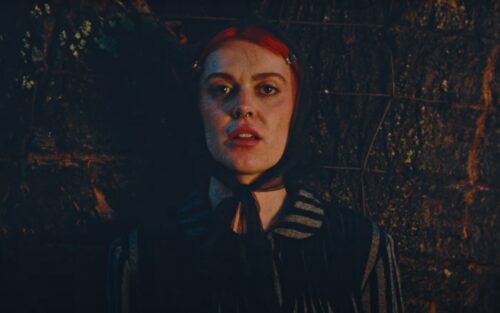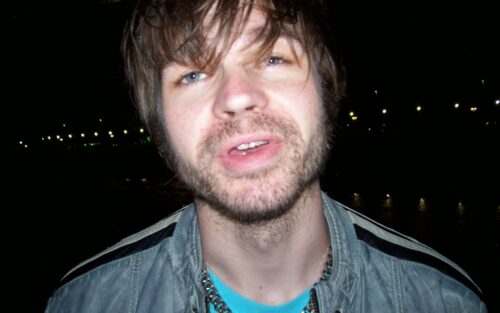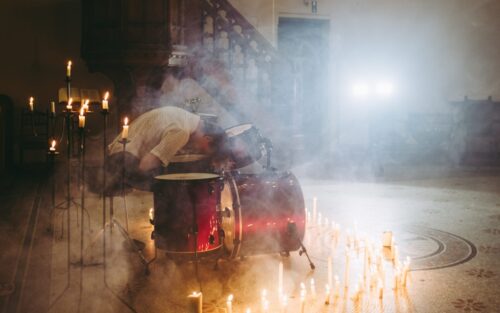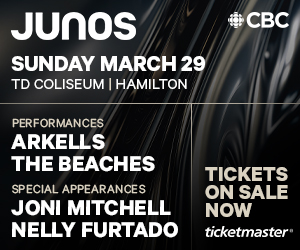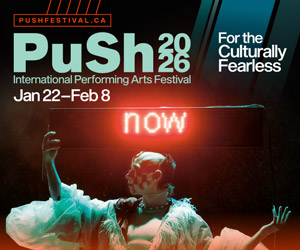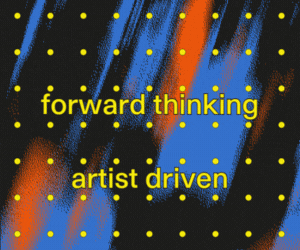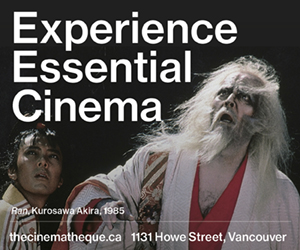Andres Reinell La Verdad Is Manifesting His Own Truth
The Latin pop singer sets the stage for his second coming with new single “Comingo.”
By Cindy Arlette Orellana
- Published on
Channeling truth in art as both a healing and freeing practice, Reinell is just starting to come into his own, working with a solid team of producers and writers to concoct a vibe that aligns with his values. His new single, “Conmigo” is a certified bop that is setting the tone for his second coming. We spoke to the singer about preserving one’s musical integrity while shifting sounds, songwriting as therapy, and the future of Latin music in Canada.
Who Is Andres Reinell La Verdad?
When I started singing I was just Andres but I added the other stuff because my producer at the time was like, “Yo, your name’s too plain. You can’t roll around and be like “Hey! I’m Joe, I’m Mike. You need to have a name that’s more memorable.” So I took my abuelita’s maiden name, which is Reinell, and then La Verdad means “The Truth.” It’s a nickname someone had given me a long time ago. He said about me, “Andres is the truth” and it resonated with me. I feel like that’s something that I try to do. I try to be truthful; I try to be honest in my music and how I express myself.
What’s the first song you ever heard that made you feel ways and made you want to do music?
Growing up in our household there was a lot of Stevie Wonder, Michael Jackson, and the Beatles. My parents were also really into boleros and stuff like that. Even as a kid, I used to sing in the grocery store. It was always something I was drawn to. But I think the singers that really made me say, “Yo, I want to do that!” are a lot of singers of the 90s. I was really into 90s R&B, so K-Ci Hailey from Jodeci and K-Ci & JoJo. I really like Wanya Morris (of Boyz II Men). Prince is also a big influence.
I know R&B has been your primary influence but your new single, “Conmigo,” is going off something a bit different. Did you feel apprehensive about going off the usual musical path when you did the single?
R&B is a heavy influence on me, but I’m influenced by a lot of other genres and artists. R&B always has a real special place in my heart, but I love the 70s salsa, 70s soul. I love some of these corridos that I’m hearing now, you know? I have a wide, eclectic ear closet, so I think for me, yes, this is a different sound. I credit the people I’m working with. I took some time off from music and kind of came back to it, and when I came back, I had to start from the beginning again.


I think a big part of that is that I have a co-writer by the name of O Z (pronounced Oh Zeta). He was really challenging me. So, for the first time ever, really, I have a co-writer and the chemistry has been really good between us, so that’s probably why the sound is a little different. He really pushed my pen game and introduced me to a lot of new sounds. And that’s what Flow Verdad is, you know? We crafted that over the last few years. We’ve been building this sound the way we wanted it to sound and now the single, “Conmigo,” is sort of like the first drip.
Speaking of songwriting, how much of it stems from imagined stories, or is it all lived experiences?
It’s all real; it all comes from a real place. Most of my songs are for an audience of one. And it’s pretty real; that nickname, La Verdad, was just something that somebody said about me that I thought was cool and now it’s really manifesting itself in my writing because I’m just putting all my truths out there. And sometimes, my truth is messy; sometimes, my truth is sad and sometimes, it is what it is, but it’s my truth. So a lot of my lyrics are not literally always one hundred percent true, but there’s always a true feeling and sentiment, and there’s a person and there’s a story, a real story, from my life behind every song.
What is your greatest hope for Latin music in Canada?
When I was younger, genres were put into little boxes: “this is hip-hop, this is R&B, this is country, this is this, and this is that,” and we had a very linear sort of experience because of it, but now I think kids listen to so much stuff! It’s all online. They’re streaming, they have access to so much, so they’re influenced by it more and I think that’s reflecting the music being made today. I hope that people feel comfortable liking what they like. Don’t worry about what you’re labeling it or branding it—just have an honest experience with it. If it resonates with you, then it resonates with you. I hope that Latin music does resonate with people here in Canada because it’s really growing and people are doing a lot of really innovative, great things with it.
How do you wish to be remembered?
I think that the artist is the person, who I am as an artist, it is me, so as an artist and a person, I always try to be authentic, truthful and kind. So I hope people understand that our music comes from a real place: it’s my truth and no matter what topic it is, the intent is always to share my truth and hope that it resonates with people in a way that is meaningful.
By Stephan Boissonneault
Nate Amos revisits a decade of stray ideas and turns them into his most compelling record yet.
By Khagan Aslanov
Mike Wallace’s electro-punk project premieres the hypnotic, percussion-driven video for "Certain Days."

